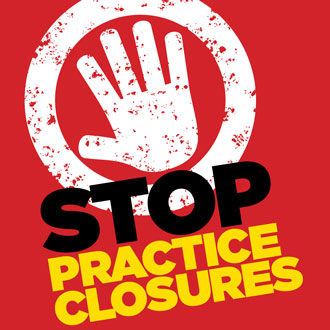‘Vanguard’ practice seeks takeover by hospital due to unsustainable workload

Exclusive A successful ‘vanguard’ practice is in talks about becoming a salaried service under the local trust’s control because its workload has left partners on the brink of ‘physical and emotional collapse’.
The Brune Medical Centre in Gosport, Hampshire has approached Southern Health NHS Foundation Trust about a potential takeover.
The 9,000 patient practice has three whole time equivalent GPs, and has been unable to recruit partners or salaried doctors for three years and have increasingly used nurse practitioners to cover gaps.
Local leaders have said that practices in the region are looking to develop formal mechanisms to allow them to move to an employed model under secondary care control due to growing interest.
This would be partly done through the South Hampshire Multispecialty Community Provider (MCP), which includes Brune Medical Centre plus 29 GP practices and Southern Health itself.
It is one of the ‘new model of care’ vanguards devised by NHS England, which sees GP practices and hospitals working together in larger organisations providing both primary and secondary care.
GP leaders have warned that the new models of care could lead to practices being ‘devoured’ by hospitals.
The majority of practices in the MCP vanguard remain independent contractors, though they are developing a new framework which would allow merged practices to be contracted as a provider arm of the trust.
Southern Health last year made arrangements to take on the staff and premises of another struggling Gosport practice, and said that ‘three or four’ Hampshire practices had expressed interest in a merged arrangement with them.
Brune Medical Centre’s senior partner Dr Stuart Morgan told Pulse that being part of the vanguard has helped the practice, but they could not ‘hold on’ until pressures abated.
Dr Morgan told Pulse: ‘We’re a popular and highly regarded practice locally, and yet we have succumbed. It just shows how vulnerable practices are, even medium-sized practices such as ourselves are vulnerable. It only needs one resignation or one retirement for the whole house of cards to come tumbling down.’
’While one would like to hold on and hope things would change through vanguard, and I’m sure they will, it’s too late for us.
Dr Morgan told Pulse they had turned to Southern Health because they ‘don’t want to hand back our contract and open up a tendering process, potentially including private sector providers.’
He added: ’It’s more than burnout; it’s reaching the point of physical and emotional collapse due to the sheer overwhelming pressure of workload.’
Dr Nigel Watson, chief executive of Wessex LMCs, told Pulse: ‘Part of the solution for [Brune Medical Centre] and others is, we’re looking at developing an employed model.
‘So the partnership model can survive, but those who would like to move to a model where the risk of property ownership and managing staff goes, where they’re paid a salary and work with other organisations, is possible.’
What support is available to practices facing closure?

Copy of Stop Practice Closures-logo-online-330
Pulse has been calling on NHS England and the Government to make emergency funding available to practices on the brink of closure through its Stop Practice Closures campaign.
After almost three years, NHS managers took note, revealing a £10m rescue fund which could be used to support 600 of the country’s most vulnerable practices, by parachuting in IT and managerial support.
However with surgery closures hitting three-year highs, GP leaders have warned it could be too little too late.









